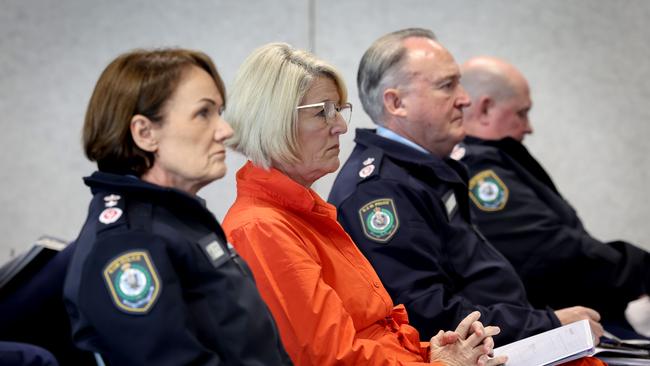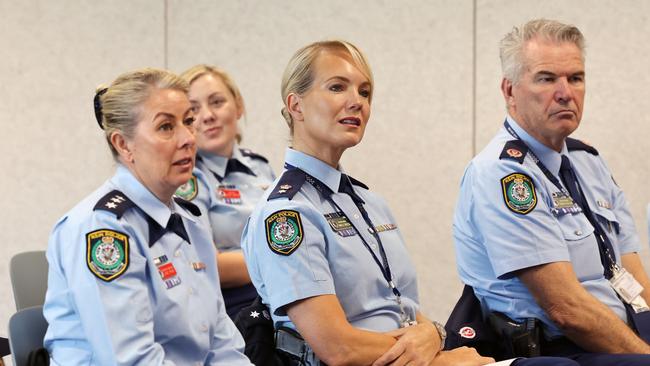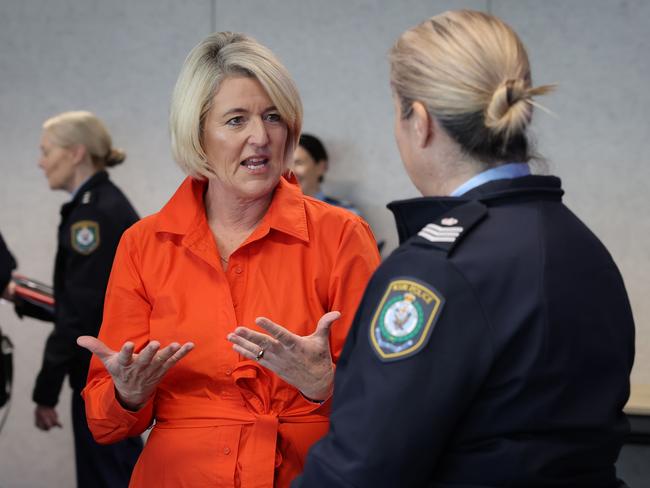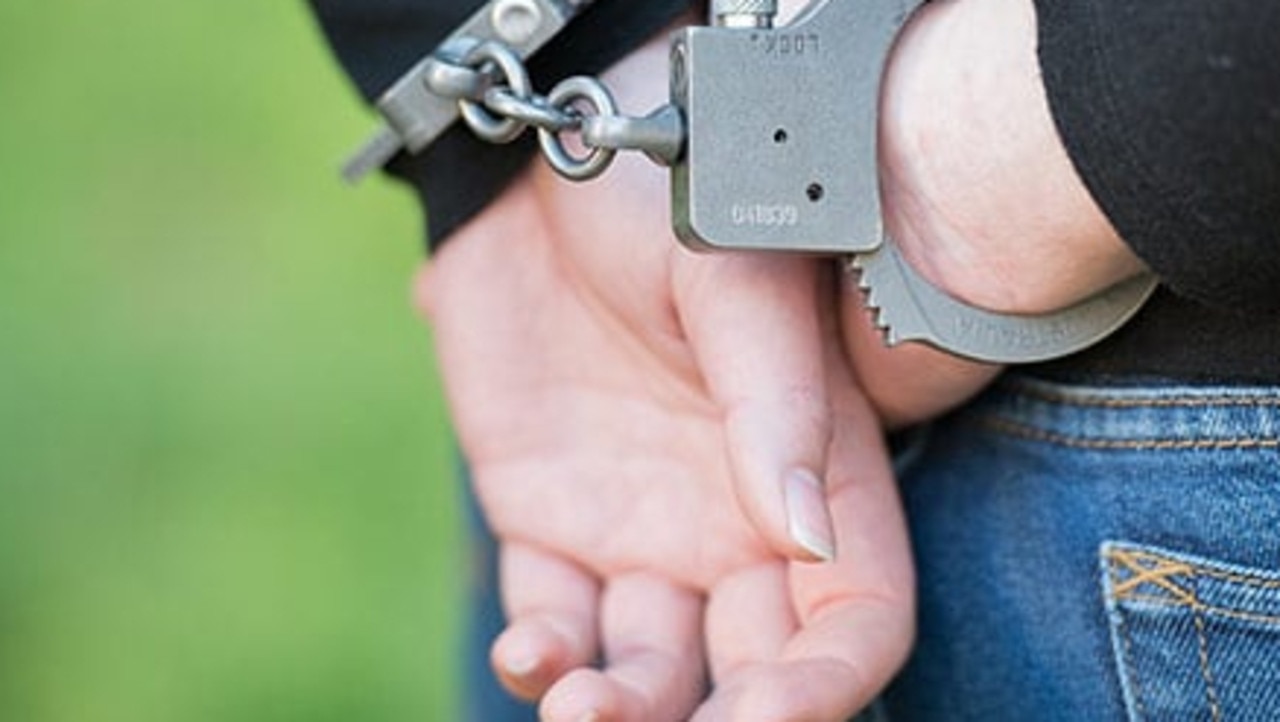NSW Police to crack down on DV monsters under new coercive control powers
Rachael Natoli said being coercively controlled by her partner felt like a web she was unable to escape from and believes new laws and police training will help many escape this insidious form of abuse.

Police & Courts
Don't miss out on the headlines from Police & Courts. Followed categories will be added to My News.
Every single police officer in NSW, from probationary constables to the Commissioner, have undergone intensive training to be ready for the new coerce control legislation that comes into effect on Monday.
The Sunday Telegraph can reveal Commissioner Karen Webb and Police Minister Yasmin Catley trained alongside the thousands of troops who had mandatory training to equip them with the tools and knowledge to effectively respond to incidents where perpetrators show a pattern of behaviour that seeks to control or entrap another person.
Commissioner Karen Webb told the Sunday Telegraph that officers are now able to more easily recognise coercive control behaviours that are often hidden, as by nature they take place behind closed doors. This will allow us to best assist victims, who often suffer in silence.
READ RACHEL NATOLI’S STORY BELOW

“Put simply, police will be looking for any controlling patterns of behaviour that restrict someone’s personal choice. This can include restricting people’s movements, their access to friends and family or how they spend their time, controlling money, restricting the type of clothes they wear, monitoring phones and emails, and restricting their religious practices.
“These are just some examples as there are many types of behaviour police will look out for – the key is that someone’s liberty is affected and they are unable to live their life freely.
“I think our wider community has spoken and made it clear this type of behaviour is not acceptable. Police are targeting this behaviour, along with all domestic violence crimes, as a priority.”
Minister for Police and Counter-terrorism Yasmin Catley said the criminalisation of coercive control in NSW was a significant day for victim/survivors.

“Not only does it add further legal weight to their experiences but gives the NSW Police Force another mechanism to address domestic and violence.
“NSW is leading the country with these laws. Criminalising coercive control sends a strong message: this vile, criminal behaviour is not tolerated.
“Police already go above and beyond, risking their own personal safety at times to target domestic and family violence. It’s incredibly important that we as the Government, ensure police have all the tools they need to identify and target this type of offending.”
Domestic Violence NSW Deputy CEO Elise Phillips said it was important to note the legislation establishing coercive control as a criminal offence is not retroactive but past behaviour can be used as evidence for a protection order in AVO proceedings.
“The new coercive control legislation is an important step in the way we recognise and respond to the more complex and less obvious ways domestic and family violence is committed,” Ms Phillips said.

“It’s the first step and with anything new at this level it’s bound to take time to finesse but as we’ve seen from the past few months, NSW and indeed Australia, are ready for more action to be taken to address the escalating emergency of domestic and family violence.”
Ms Phillips said It was likely that criminalising coercive control will lead to more people reaching out to specialist services for support.
“It’s crucial that these frontline services receive additional funding to ensure that everyone gets the support they need.”
DVNSW Senior Policy Advisor Erin Hunt said narratives that imply victim-survivors use allegations of domestic and family violence and sexual assault as a weapon against partners, have been well disproven by evidence.
“In fact, we know that domestic and family violence and sexual assault, are exceptionally under-reported due to fears of not being believed or repercussions from the perpetrator.
“Attitudes are an important part of how we address domestic and family violence – If we want to create a safer society for victim-survivors, the first thing we must do is believe them.”
All officers completed a mandatory online module before face-to-face training so they understand the offences available and the way the NSWPF will now approach domestic and family violence since the passing of the legislation.
The training outlines how to recognise, respond and record allegations of coercive control, how to collect and record evidence and information on prosecuting the offence.
The course focuses on the nuances around coercive control within different communities, with a focus on First Nations and culturally and linguistically diverse communities.
The training features a video taken of a panel of subject experts from government and non-government organisations who discuss the coercive control legislation and its implementation.
It also features “scenario-based applications” of coercive control to provide officers with examples of coercive control incidents they may be exposed to in the field.




